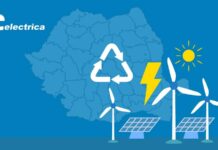Aseara cei de la BBC au difuzat un reportaj in care prezentau conditiile grele de munca din fabricile Pegatron care asambleaza iPhone, iPad si Mac-urile companiei Apple. In fata acuzatiilor BBC, CEO-ul Apple, Tim Cook, s-a declarat profund ofensat de afirmatiile conform carora Apple permite existenta acestor practici in fabricile din Asia.
Informatiile privind atitudinea lui Tim Cook au fost regasite intr-un email trimis de catre SVP-ul Apple, Jeff Williams, celor 5000 de angajati Apple din Marea Britanie, In email acesta sustine ca atat el cat si Tim Cook sunt profund ofensati de acuzatiile postului de televiziune BBC, mai ales de faptul ca Apple si-ar fi incalcat promisiunile de a rezolva problemele angajatilor.
Mai mult decat atat, Williams a declarat ca Apple a oferit postiului de televiziune BBC informatii privind munca depusa de Apple pentru rezolvarea problemelor de acest gen, dar ca ele nu au fost difuzate. Adevarul este ca nimeni nu stie in ce masura cei de la BBC au ascuns sau nu informatii oferite de catre Apple, dar realitatea este ca probleme mari exista in Asia.
Indiferent cat de ofensati sau nu sunt managerii Apple, realitatea este ca ei sustin companiile care isi trateaza prost angajatii, asta in timp ce in SUA promoveaza campanii pentru egalitate in drepturi.
UK Team,
As you know, Apple is dedicated to the advancement of human rights and equality around the world. We are honest about the challenges we face and we work hard to make sure that people who make our products are treated with the dignity and respect they deserve.
Last night, the BBC’s Panorama program called those values into question. Like many of you, Tim and I were deeply offended by the suggestion that Apple would break a promise to the workers in our supply chain or mislead our customers in any way.
I’d like to give you facts and perspective, all of which we shared with the BBC in advance, but were clearly missing from their program.
Panorama showed some of the shocking conditions around tin mining in Indonesia. Apple has publicly stated that tin from Indonesia ends up in our products, and some of that tin likely comes from illegal mines. Here are the facts:
Tens of thousands of artisanal miners are selling tin through many middlemen to the smelters who supply to component suppliers who sell to the world. The government is not addressing the issue, and there is widespread corruption in the undeveloped supply chain. Our team visited the same parts of Indonesia visited by the BBC, and of course we are appalled by what’s going on there.
Apple has two choices: We could make sure all of our suppliers buy tin from smelters outside of Indonesia, which would probably be the easiest thing for us to do and would certainly shield us from criticism. But it would be the lazy and cowardly path, because it would do nothing to improve the situation for Indonesian workers or the environment since Apple consumes a tiny fraction of the tin mined there. We chose the second path, which is to stay engaged and try to drive a collective solution.
We spearheaded the creation of an Indonesian Tin Working Group with other technology companies. Apple is pushing to find and implement a system that holds smelters accountable so we can influence artisanal mining in Indonesia. It could be an approach such as “bagging and tagging” legally mined material, which has been successful over time in the Democratic Republic of the Congo. We are looking to drive similar results in Indonesia, which is the right thing to do.
Panorama also made claims about our commitment to working conditions in our factories. We know of no other company doing as much as Apple does to ensure fair and safe working conditions, to discover and investigate problems, to fix and follow through when issues arise, and to provide transparency into the operations of our suppliers.
I want you to know that more than 1400 of your Apple coworkers are stationed in China to manage our manufacturing operations. They are in the factories constantly — talented engineers and managers who are also compassionate people, trained to speak up when they see safety risks or mistreatment. We also have a team of experts dedicated solely to driving compliance with ourSupplier Code of Conductacross our vast supply chain.
In 2014 alone, our Supplier Responsibility team completed 630 comprehensive, in-person audits deep into our supply chain. These audits include face-to-face interviews with workers, away from their managers, in their native language. Sometimes critics point to the discovery of problems as evidence that the process isn’t working. The reality is that we find violations in every audit we have ever performed, no matter how sophisticated the company we’re auditing. We find problems, we drive improvement, and then we raise the bar.
Panorama’s report implied that Apple isn’t improving working conditions. Let me tell you, nothing could be further from the truth. Here are just a few examples:
Several years ago, the vast majority of workers in our supply chain worked in excess of 60 hours, and 70+ hour workweeks were typical. After years of slow progress and industry excuses, Apple decided to attack the problem by tracking the weekly hours of over one million workers, driving corrective actions with our suppliers and publishing the results on our website monthly — something no other company had ever done. It takes substantial effort, and we have to weed out false reporting, but it’s working. This year, our suppliers have achieved an average of 93% compliance with our 60-hour limit. We can still do better. And we will.
Our auditors were the first to identify and crack down on a ring of unscrupulous labor brokers who were holding workers’ passports and forcing them to pay exorbitant fees. To date, we have helped workers recoup $20 million in excessive payments like these.
We’ve gone far beyond auditing and corrective actions by creating educational programs for workers in the same facilities where they make our products. More than 750,000 people have taken advantage of these college-level courses and enrichment programs, and the feedback we get from students is inspiring.
I will not dive into every issue raised by Panorama in this note, but you can rest assured that we take all allegations seriously, and we investigate every claim. We know there are a lot of issues out there, and our work is never done. We will not rest until every person in our supply chain is treated with the respect and dignity they deserve.
If you’d like to learn more about our Supplier Responsibility program, I encourage you and our customers to visit our website atapple.com/supplier responsibility.
Thanks for your time and your support.
Jeff
















